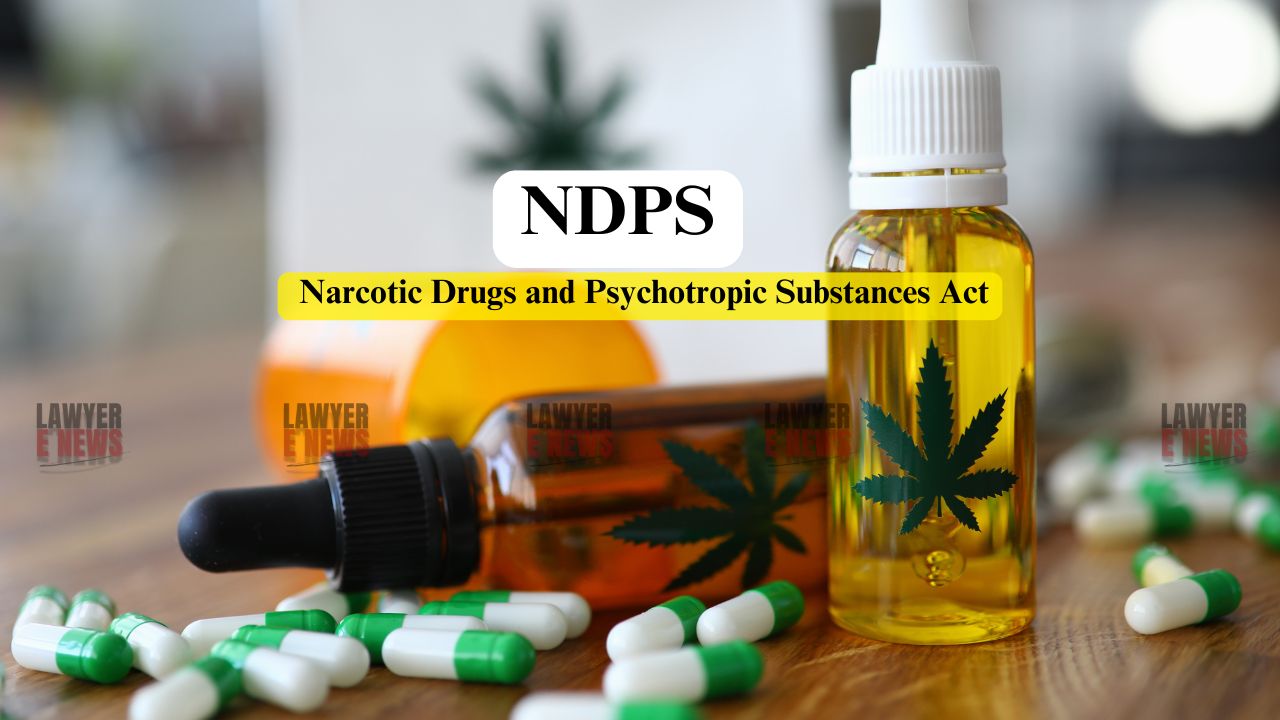-
by Admin
15 February 2026 5:35 AM



Telangana High Court delivered a significant ruling in Mohammed Khayyum vs. The State of Telangana, upholding a 10-year rigorous imprisonment sentence and a fine of Rs. 1,00,000 for the appellant, Mohammed Khayyum, under Section 20(b)(ii)(C) of the Narcotic Drugs and Psychotropic Substances Act (NDPS Act). The Court rejected the appellant's claim that he was merely the driver of the vehicle and had no knowledge of the contraband. The judgment underscored the principles of conscious possession and the liability of individuals in control of private vehicles transporting narcotic substances.
On March 26, 2017, a Bolero car without a license plate was intercepted by the Forest Section Officer, Paloncha. The car, traveling at high speed, was found carrying four people from Odisha and 208 kg of ganja worth Rs. 12,48,000. Following this discovery, the police registered Crime No. 141 of 2017 against the accused, including Mohammed Khayyum, who was identified as the driver of the vehicle. A full-fledged investigation led to the filing of a charge sheet against the accused, and the trial court convicted them under Section 20(b)(ii)(C) of the NDPS Act.
The appellant challenged the trial court's judgment, arguing that he was simply the driver and had no connection to the seized ganja. He further contended that the prosecution failed to follow proper procedures, including not drawing samples from each packet and the lack of independent witnesses. The appellant claimed that the seizure column in the FIR was empty, implying no seizure had occurred.
The High Court examined whether the principles of conscious possession under the NDPS Act applied to the appellant and if the prosecution followed due process in seizing and testing the contraband. The Court also evaluated whether the absence of independent witnesses and certain procedural lapses affected the prosecution's case.
The Court referred to the Supreme Court's decision in Union of India v. Md. Nawaz Khan, which discussed the concept of conscious possession in narcotics cases. It noted that in private vehicles, the standard of conscious possession is different than in public transport vehicles. The Court held that once possession is established, the individual claiming it was not a conscious possession must prove it. Since the appellant was the driver of a private vehicle containing a commercial quantity of ganja, the presumption was against him. The Court stated that under Section 35 and Section 54 of the NDPS Act, a statutory presumption exists regarding possession of illicit substances, placing the burden of proof on the accused.
The Court found that the prosecution had followed the proper procedure for the seizure and sampling of the contraband. P.W.8, the Circle Inspector, testified to receiving the FIR and seizing the ganja in the presence of a Tahsildar. The contraband was sent to the Forensic Science Laboratory, which confirmed it was ganja. The Court dismissed the appellant's argument that the lack of independent witnesses and minor inconsistencies invalidated the prosecution's case, noting that the evidence of official witnesses was consistent and reliable.
The Court held that the absence of independent witnesses did not render the evidence of official witnesses unreliable. Citing the Supreme Court’s decision in Hari Obula Reddy v. State of Andhra Pradesh, it stated that the testimony of interested witnesses cannot be discarded merely because there is no independent corroboration.
The Telangana High Court affirmed the trial court's judgment, concluding that the evidence presented was sufficient to prove the guilt of the appellant beyond a reasonable doubt. It held that the trial court had correctly applied the law and that the sentence imposed was appropriate given the commercial quantity of the contraband seized. Consequently, the criminal appeal was dismissed.
Date of Decision: September 12, 2024
Mohammed Khayyum vs. The State of Telangana
